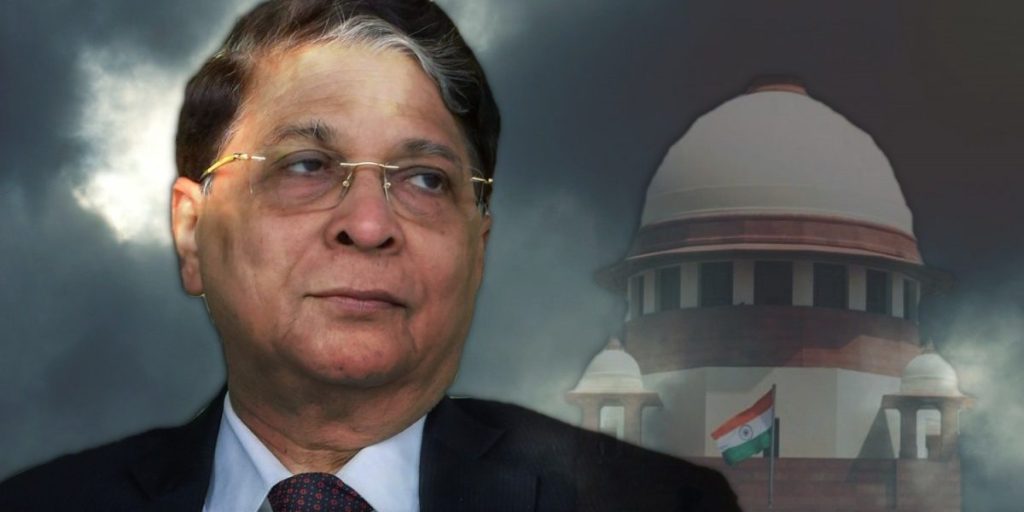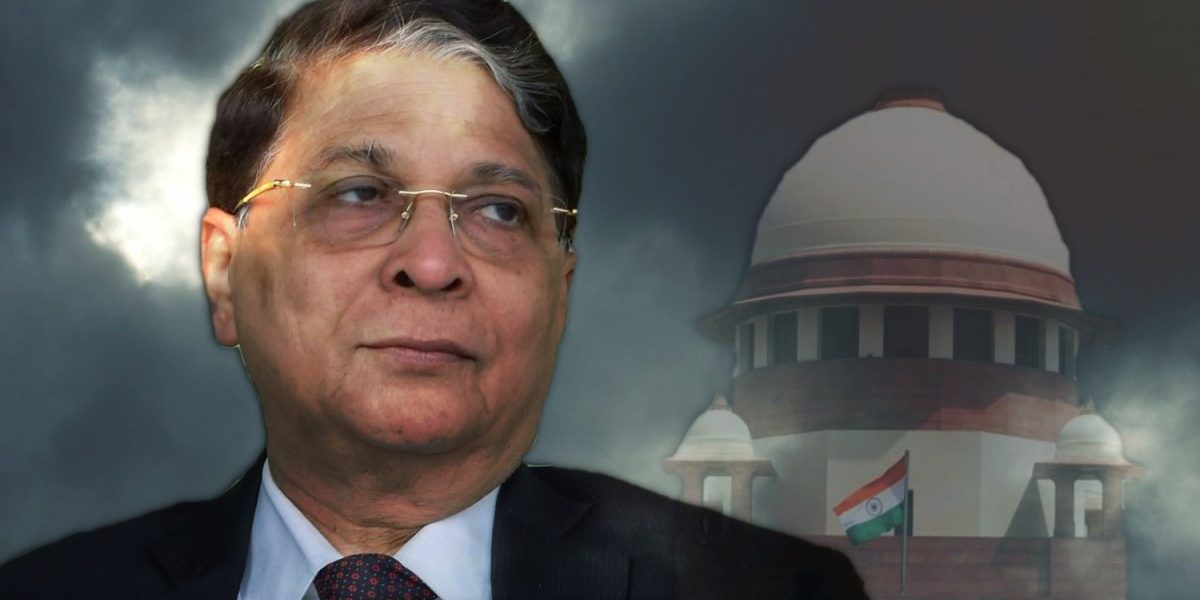Now Reading: The towering and landmark judgments concluded during the tenure of Justice Dipak Misra
-
01
The towering and landmark judgments concluded during the tenure of Justice Dipak Misra
The towering and landmark judgments concluded during the tenure of Justice Dipak Misra
During the concluding week of serving as the 45th Chief Justice of India, Justice Dipak Misra had passed multifarious judgments such as the controversial constitutionality pertaining to Aadhaar to the rationality reflected while deciding the judgement concerning the entering of women into the Sabarimala temple. Such monumental judgments are sure to leave footprints in the sand of times. While some of the decisions have been made in unison and received accolades while few doubtlessly gathered criticism.
Listed below are the crowning judgements delivered by the Hon’ble Supreme Court of India in by Bench of 45th CJI in his concluding week:
Decriminalising of section 377 of the Indian Penal Code
The Apex Court on 06.09.2018, in Navtej Singh Johar & Ors. Vs. Union of India through Secretary, Ministry of Law and Justice, passed a judgment whereby it decriminalised homosexuality. The decision of making gay sex as no more illegal re-established the members of LGBTIQ community ‘d utmost confidence, belief and hope in the judicial system of India. The verdict of decriminalising the concept homosexuality between two consenting adults by upholding Section 377 of the IPC as unconstitutional has been one of the monumental victories to boast about.
Reservation pertaining to promotion for the SC/ST employees of the Government
The Apex Court on 26.09.2018 in Jarnail Singh &Others v Lachhmi Narain Gupta And Others, had dismissed the appeal for reconsidering its own preceding order which had abandoned the notion of reserving seats for the Scheduled Castes (SCs) or Scheduled Tribes (STs) for the promotions posts made in Government jobs.
Aadhaar’s Validity
The Hon’ble Supreme Court of India on 26.09.2018, in Justice K.S. Puttaswamy (RETD.) And Another) v Union Of India And Others , upheld the validness of Aadhaar while revoking Section 57 of the Aadhaar Act. The Court had opined that the private companies cannot demand for Aadhaar, similarly it shall not be obligatory to open bank accounts, or for securing a mobile connection
The controversial case of Ram Janmabhoomi-Babri Masjid
The Supreme Court on 27.09.2018, in M. Siddiq (D) Thr. Lrs v Mahant Suresh Das And Others Etc. had disapproved the two pleas wheeling around the controversial Ayodhya case . One which directly dealt with the manner the discarded land had been s split as per the ruling of the Allahabad High Court in 2010 while the other having a straightforward and direct impact upon the ultimate verdict of the Supreme Court in the case.
Adultery declared as no more a crime:
The Apex Court on 27.09.2018, in Joseph Shine v UOI ,came up with its chronicled judgment where it historic judgement, the Supreme Court quashed the offence of adultery as anymore a criminal offence in India. The court opined that the said Section 497 that defines adultery, tends to treat women as mere properties or commodities in the hands of the husbands which is highly discriminatory in nature. It further crushed the Union Government’s defence that the aforesaid section acts a shield in protecting the sacredness of marriages.
The verdict on Sabrimala (Right to pray):
The Supreme Court on 28.09.2018, in Indian Young Lawyers Association & Ors. v The State of Kerala & Ors. with a ratio of 4:1, elevated the age old constraint on women of the age group of ten to fifty from entering into the Sabrimala temple in Kerala . While delivering such mammoth judgement the CJI concluded that such practice in the temple is derogatory and is violative of the rights of a Hindu woman and has to be in consonance with the Indian Constitution.
The Bhima Koregaon arrest
The Supreme Court on 28.09.2018, in Romila Thapar and Ors. v Union of India and Ors ordered the period of extension of house arrest of some activities to a period of four more weeks.
Live streaming of the courtroom hearings
The Apex court on 26.09.2018, in Swapnil Tripathi v Supreme Court of India ,agreed upon bringing the courtroom proceedings under the public eyes through live-streaming of the various functions of the court, this judgement carved a road for the public to witness the courtroom drama.
Politicians possessing criminal antecedents
The Supreme Court of India on 25.09.2018, in Public Interest Foundation & Ors. v Union of India & Anr. , in an unison left it at the option of the Parliament for enacting a law from barring the lawmakers from contesting for the post of elections who are charged for committing heinous offences while further observing the that concept of criminalisation of politics is a bane to the blockhouse of democracy. The Court refused from putting a ban upon such candidatures possessing criminal antecedents from contesting elections; the Court further opined that the law must make it obligatory for all political parties to withdraw the membership of candidates facing criminal cases.
Differently abled persons should not have to face deprivation of information under the RTI ACT
The Apex Court on 27.09.2018, in Aseer Jamal v Union of India & Ors. The Supreme Court disposed of the writ by upholding that there was no further requirement for any directions to be issued excluding to providing of liberty to any petitioner for submitting a representation before an authority which was competent for receiving information under the Act and as such that the representation ought to be dealt in with a sense of empathy and sympathy and that persons who are differently abled ought to have facilities for receiving the information under the Act.
Cancellation of all engineering degrees offered through open distance mode without AICTE’s approval
The Apex Court on 24.09.2018 ,in Jai Singh and Ors. v University Grants Commission and Ors. while dismissing the petition held for recalling and cancellation of the degrees through open distance mode of learning while directing for refunding the money to the enrolled students by the respondent within a stipulated time. Further, the Court gave directions to CBI for carrying out investigation into the officials conduct involved in granting permission against the policy. A restraint was put upon all deemed to be universities from conducting any course through open distance learning mode until made permissible . A Committee was to be conducted for examining the issues and recommending a plan to strengthen and set up regulatory machinery while based on the report submitted by the Committee, the Union of India after properly examining the report may take such actions which are required and file affidavit in the Apex Court for further consideration.
These judgments are not only the landmark judgments but also have in some way or the other benefited the society at large. IF SUCH MASSIVE JUDGMENTS AND DECISION ARE CONTINUED TO BE RATIONALLY passed by the Hon’ble Supreme Court, then it is for sure that one day the judicial system is sure to have reached the zenith of success.








